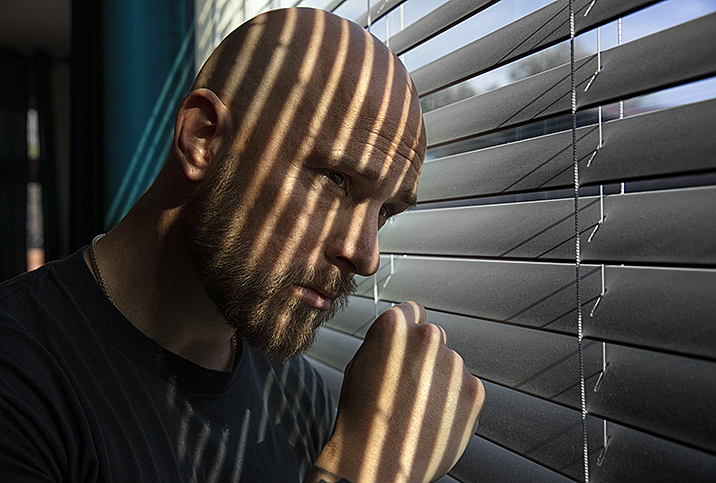Avoid Anxiety's Health Effects by Finding the Right Treatment

Worrying is a natural part of adulthood, because we constantly make choices that have lasting impacts on our future. Unfortunately, this worrying may resemble chronic anxiety, and while many adults will experience anxiety in their lifetime, treatment is too often discouraged and avoided.
When worry becomes anxiety
The unfortunate stigmas attached to mental health issues continue to prevent people from seeking treatment, but mental illness should not be ignored. When considering treatment for your anxiety, it’s important to understand the line where worrying becomes anxiety.
If you experience chills, shortness of breath and are consumed with feelings of dread, these are signs of a panic disorder often caused by anxiety. In addition to these direct symptoms, you may also experience stomach problems, constipation, diarrhea and in extreme cases, tightness in the chest similar to a heart condition.
Health impacts of anxiety
One of the most concerning responses to anxiety is the belief that it will resolve on its own. When I realized my constant worrying and insomnia might be anxiety, I waited six months before I sought treatment. It wasn’t until my partner insisted I do something about my mental health that I actually considered addressing the problem.
This is an all-too-common response to mental illness, because we feel our issues will disappear as quickly as they appeared. Unfortunately, there are long-term effects of anxiety if we avoid treatment:
- Secondary diagnosis of depression. This condition is often diagnosed with anxiety because anxiety can impact life so dramatically that sufferers become depressed by changes in their life.
- Substance use disorders. Before seeking treatment, some anxiety sufferers will self-medicate with alcohol or other substances thinking it will help take their mind off the issues. Unfortunately, this can lead to addiction and increased anxiety symptoms while only temporarily masking distress.
- Compromised immune system. Frequent worry, which releases high levels of cortisol into your bloodstream, can actually worsen inflammation, compromising your immune system and impacting gut health. Untreated anxiety can often manifest as frequent physical illness and chronic intestinal issues such as irritable bowel syndrome.
- Increased risk of suicide. Over time, the combination of frequent anxiety symptoms, panic attacks, social aversion and depression can lead a person to feel there is no hope, and this is when sufferers might contemplate suicide. (If you or someone you know needs help, call 800-273-8255 for the National Suicide Prevention Lifeline.)
While these potentially long-term impacts might be overwhelming, it’s important to remember anxiety is one of the most common mental health issues, and as such, there are effective treatments specifically targeted at these symptoms. Even if you feel you have ignored your anxiety for too long, and it's already impacted your life, there is still hope—but you cannot do it alone.
Find the right treatment
When I first sought treatment, I didn’t know where to turn. I talked to my doctor, and though he seemed to sympathize, he went straight to the prescription pad. I knew there were safe and effective medicinal options for treating anxiety, but I felt that talking to someone was important because my triggers involved past traumas medication would only mask.
I eventually found a counselor who has helped me to sift through my childhood trauma to find peace. For my anxiety, I was able to find relief without medication, but I always leave this topic open with my counselor. My ultimate goal is to be healthy, and I know this one day could include medication.
Many anxiety patients find relief through a combination of treatment options, such as:
-
Medication. A variety of antidepressants, anti-anxiety medications and natural interventions can help halt the symptoms of anxiety before, during or after a triggering event. Be sure to ask about medications’ safety, effectiveness and the recommended duration of use.
-
Cognitive behavior therapy. This therapy allows patients to discuss their triggers and explore the events of their past with the hope that processing these issues can actually reprogram their thought patterns. This therapy option can involve talking to a counselor as well as undertaking self-guided exercises.
-
Controlled breathing strategies. This technique can focus on your breathing to lower your heart rate, EFT Tapping, or even timed meditation to overcome intrusive thoughts or panic symptoms.
Treatment for anxiety is unique to each individual and should be based on discussions between the patient and a medical professional. Keep an open mind and ignore any mental health prejudices or misconceptions and know that in time, anxiety is manageable and you will be able to relieve its control over your life.


















